
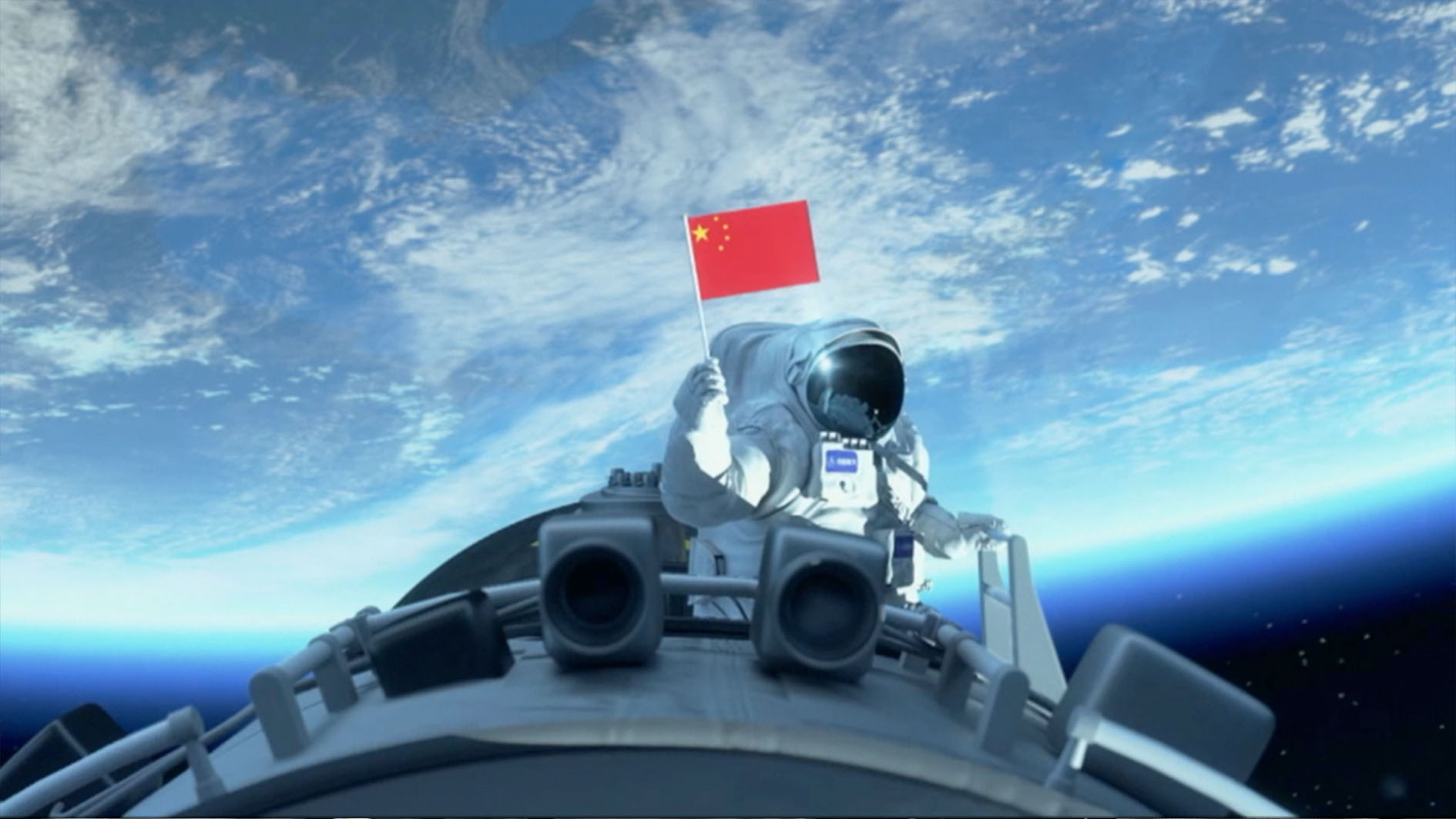
It's international cooperation that's out of this world.
The China Manned Space Agency(CMSA)and United Nations Office for Outer Space Affairs(UNOOSA) jointly announce nine international projects selected to board China Space Station- Tiangong. The Announcement came during the 62nd meeting of UNCOPUOS held on June 12th in Vienna, Austria.
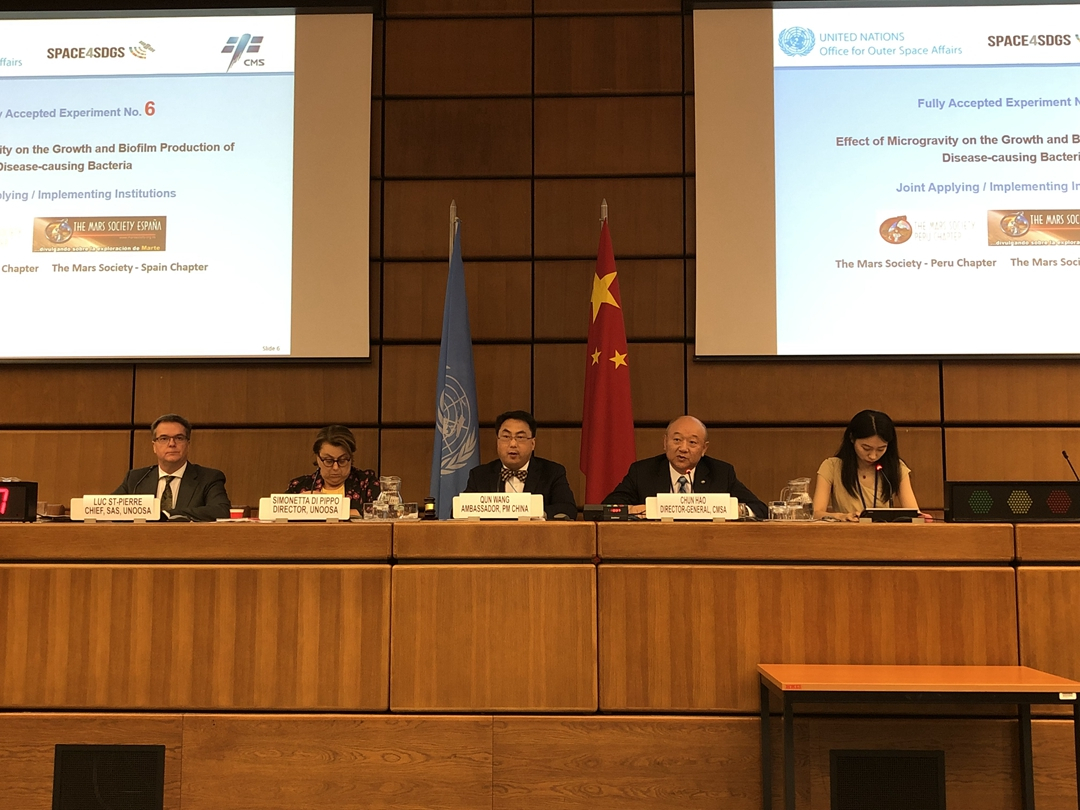
China Manned Space Agency released the final list of international projects board China Space Station on Wednesday in Vienna. /Photo from China Manned Space Agency.
The final list includes scientific research projects from 17 countries and 23 entities. They were selected from 42 applications among 27 countries.
It covers nine areas: aerospace medicine, aerospace technology, space life science and biotechnology, microgravity fluid physics and combustion science, space material science, space astronomy, geoscience, fundamental physics and finally the application of new technologies.
These projects will be installed inside the core module, experiment lab modulesⅠand Ⅱ, as well as the on Exposed Experiment Platform of the Space Station.
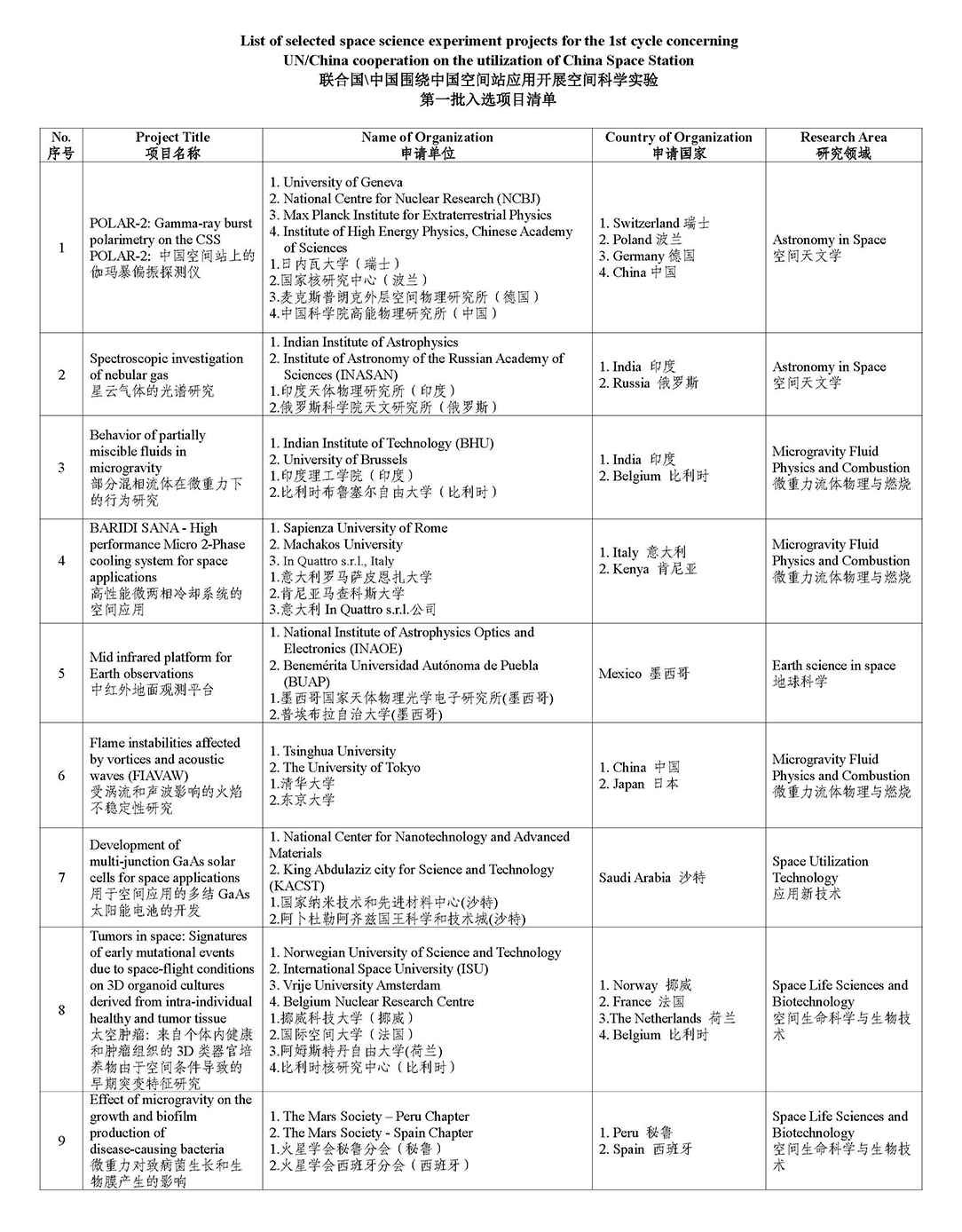
List of selected space science experiment projects for the 1st cycle concerning UN/China cooperation on the utilization of China Space Station. /Photo from China Manned Space Agency
The agreement is based on a memo signed in 2016, in which CMSA and the UNOOSA agreed to conduct international cooperation based on the Space Station Tiangong.
According to the China Manned Space Agency, the project selection process follows a set of principles. First, these projects must abide by the United Nation’s fundamental principles on peaceful uses of outer space, and they must have profound scientific value, and boost the research and development of related areas.
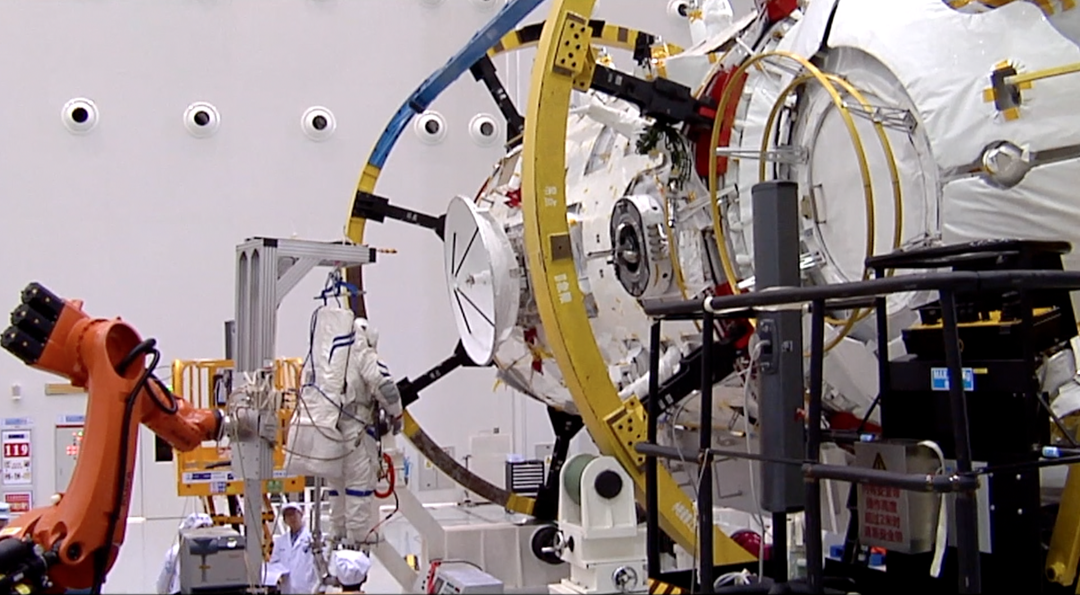
China Space Station Tiangong. /Photo from China Manned Space Agency.
“We have listed all resources for scientific experiments in the space station in a manual and shared it with all applicants," said Lin Xiqiang, a spokesman for China Manned Space Agency. "The selection is not solely dependent on the advancement of technology. We also considered that the level of development may vary in different countries. Thus as long as the project will help improve scientific research and space study in their country, it will have our support.”
To ensure transparency and fairness of the selection process, China also invited leading experts from related areas to join the evaluation group. The evaluation group is required to consist of experienced experts on manned space missions and international space cooperation. Twenty percent of the evaluation group's members are from outside China.
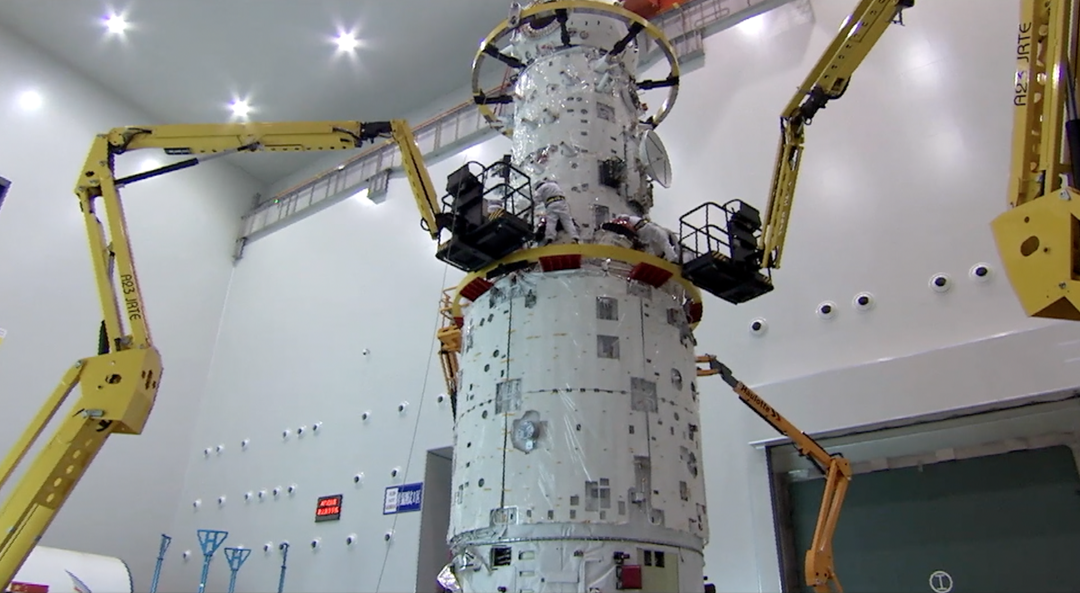
China Space Station Tiangong. /Photo from China Manned Space Agency.
China space station Tiangong is now under intense construction and tests. It has 16 scientific experiment cabinets inside the station, an exposed experiment platform on the outside surface and an optics module, which will accompany the Tiangong in orbit. In all, it can support hundreds of research projects in over 30 subjects from eleven areas such as astronomy, space life sciences and biotechnology, basic physics in microgravity, space materials science, aerospace medicine, and more.
China expects to building its first space station—the Tiangong around 2022.

Copyright © 2018 CGTN. Beijing ICP prepared NO.16065310-3
Copyright © 2018 CGTN. Beijing ICP prepared NO.16065310-3